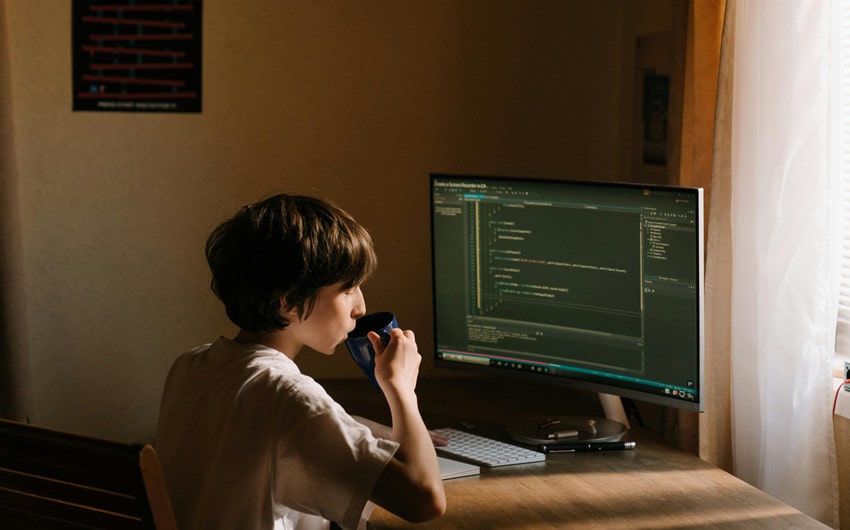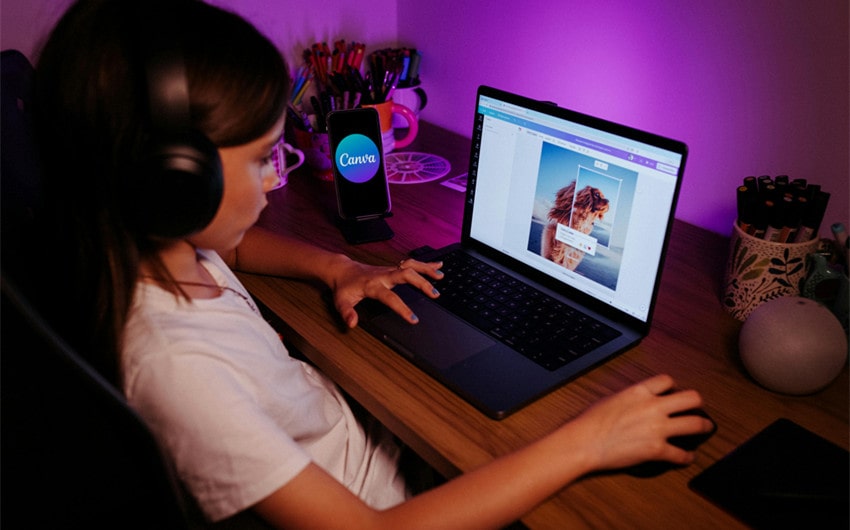19 Cool Skills to Learn When Bored That Actually Impress
We’ve all had those moments where boredom creeps in and nothing sounds exciting. But instead of scrolling endlessly or staring at the ceiling, why not turn that time into something useful—or even fun? There are plenty of cool skills to learn when bored that can spark your creativity, challenge your brain, or just make you feel accomplished.
Whether you have five minutes or an entire afternoon to kill, picking up a new skill is a great way to stay engaged and maybe even discover a hidden talent. Ready to beat boredom and impress yourself in the process? Let’s dive in.
Creative Skills That Spark Imagination
When boredom hits, your imagination can be the perfect escape—and creative skills are one of the most fulfilling ways to engage it. Unlike passive scrolling or binge-watching, creative activities give you a chance to express yourself, build confidence, and develop useful abilities, all while having fun. Even if you don’t consider yourself naturally artistic, trying something new can surprise you. Here are some of the most rewarding creative skills to explore when you want to turn idle time into inspiration:
1. Drawing or Doodling

Whether you’re sketching in the margins of your notebook or creating digital illustrations on a tablet, drawing is a timeless way to bring your ideas to life. You can start with simple line art, mandalas, cartoon characters, or still life objects around your house. Doodling, in particular, is perfect for beginners—it’s freeform, relaxing, and great for clearing your mind.
If you want to develop your technique, explore free resources like YouTube tutorials, step-by-step books, or apps like Procreate (for iPad) or Sketchbook (for all devices). The more you practice, the more you sharpen your visual thinking, hand-eye coordination, and creativity—all valuable skills even beyond the art world.
2. Photography and Photo Editing
Photography turns everyday moments into visual stories, and you don’t need a professional camera to start. Your smartphone is powerful enough to explore angles, lighting, composition, and creative framing. Try taking photos of nature, city life, textures, people, or even your pets. Challenge yourself with themes like “reflections” or “color of the day.”
Once you’ve captured your shots, editing them adds another layer of creativity. Apps like Snapseed, VSCO, and Adobe Lightroom (mobile) allow you to enhance brightness, contrast, tones, and filters. This skill teaches patience, visual awareness, and attention to detail—and it’s satisfying to create scroll-worthy results.
3. Creative Writing and Journaling

Writing gives your inner world a voice, whether you’re crafting a fantasy story, jotting down thoughts in a journal, or trying your hand at poetry. It’s an incredibly personal and rewarding way to explore your imagination. Start with a simple prompt like, “What if the moon could talk?” or “Write a story set 100 years from now.” You can even try freewriting—just writing non-stop for 5 minutes and seeing where it leads.
If journaling is more your style, use it to reflect on your day, set goals, or explore emotions. Over time, writing regularly helps improve your vocabulary, clarity of thought, and emotional expression. It’s a great outlet that requires nothing but a notebook or phone—and a few quiet minutes.
4. DIY Crafting and Origami
Crafting is hands-on creativity at its best. From making friendship bracelets and painting rocks to building mini models or scrapbooks, the options are endless. You can start with things you already have at home—paper, string, cardboard, fabric scraps—and turn them into something new and meaningful.
Origami is a great option for those who enjoy precision and mindfulness. With just a few square sheets of paper and some online tutorials, you can learn how to make cranes, frogs, flowers, or boxes. Both crafting and origami are excellent for improving spatial reasoning, fine motor skills, and focus, while offering the joy of making something tangible with your own hands.
Handy Skills with Real-Life Benefits
Sometimes the best way to beat boredom is by learning something practical—a skill that not only fills your time but also makes your daily life easier or more fulfilling. These are the kinds of abilities that quietly build your independence, save money, or impress others down the road. They may not seem flashy at first, but mastering them can have a lasting impact on your confidence and capability. Here are some everyday skills you can start learning right now, no matter where you are:
1. Cooking or Baking New Recipes

Whether you’re already comfortable in the kitchen or can barely boil water, trying new recipes is a fun way to challenge yourself and expand your taste buds. Start with something simple, like a stir-fry, pancake stack, or homemade pizza. Baking is especially great if you like precise instructions and sweet rewards—cookies, banana bread, or mug cakes are great starting points.
Not only does cooking improve your health and save money, but it also teaches planning, creativity, and time management. Plus, sharing your food with friends or family is a guaranteed mood-booster. You can find free recipes on YouTube, TikTok, or blogs tailored to all skill levels and dietary needs.
2. Basic Sewing or Clothing Repair
Ever had a loose button, ripped seam, or too-long pant leg? Instead of tossing clothes or waiting for someone else to fix them, why not learn how to do it yourself? Basic sewing can be learned with a simple needle and thread, and you can build up to using a sewing machine if you enjoy it.
Start with tasks like patching holes, hemming pants, or adding decorative stitches. There are tons of beginner-friendly tutorials online that make it surprisingly easy. It’s a great way to extend the life of your clothes, express your style, and develop patience and precision.
3. Budgeting and Managing Personal Finances
It might not sound exciting at first, but knowing how to manage your money is one of the most empowering things you can do—especially if you’re often bored and tempted to impulse spend. Start by tracking your expenses with a free budgeting app like Mint, YNAB (You Need a Budget), or even a good ol’ spreadsheet.
Learn the basics of saving, budgeting, and goal setting, then take it a step further by understanding interest rates, emergency funds, or even investing. It’s a skill that pays off—literally—and helps you feel more in control of your future.
Tech and Digital Skills to Level Up
In a world that runs on technology, boredom can actually be the perfect excuse to level up your digital know-how. Whether you’re a student, creative hobbyist, or future entrepreneur, building tech skills is both fun and incredibly useful. These skills can boost productivity, open doors professionally, and help you turn your ideas into reality—all while keeping you engaged in the moment. Here are some cool, beginner-friendly digital skills to learn when you have time on your hands:
1. Learning Basic Coding or HTML

Think of coding as the language behind everything you do online—from websites and apps to games and digital tools. Learning the basics doesn’t require a computer science degree. Platforms like Codecademy, FreeCodeCamp, and Khan Academy offer free, beginner-friendly lessons in HTML, CSS, Python, or JavaScript.
Start by building a simple personal webpage or solving basic challenges. Coding sharpens your logic, problem-solving, and critical thinking skills. Plus, it’s fun to see your code come to life right on your screen—and who knows, it might spark a new career interest.
2. Video Editing or Animation Basics
If you love storytelling, creating content, or even just making fun clips with friends, video editing is a great skill to try. Free software like iMovie (Mac), CapCut, or DaVinci Resolve lets you experiment with trimming clips, adding music, effects, and transitions. You can even explore basic 2D animation using tools like Canva, Adobe Express, or beginner animation apps.
Video editing not only enhances your creativity, but it also helps you build planning, pacing, and communication skills. It’s perfect for YouTube, social media content, school projects, or just documenting your life in a unique way.
3. Design with Canva, Figma, or Similar Tools

Graphic design may seem intimidating, but drag-and-drop tools like Canva, Figma, and Adobe Express make it super approachable. You can create everything from digital flyers and Instagram posts to infographics and mini portfolios—no prior experience needed.
These tools help you explore visual communication, color theory, layout design, and branding basics. It’s a practical skill whether you’re making your own content, school presentations, or even resumes. And once you get the hang of it, you’ll have a blast creating eye-catching designs that are uniquely you.
4. Keyboard Shortcuts and Digital Productivity Hacks
Ever watched someone fly through tasks on a computer using just a few key presses? That can be you. Learning keyboard shortcuts, browser tricks, and productivity extensions can transform how you use your devices.
Start with basics like:
-
Ctrl/Cmd + C (copy) / V (paste)
-
Ctrl/Cmd + Z (undo)
-
Alt + Tab (switch windows)
-
Ctrl/Cmd + F (find)
Then level up with tools like Notion, Trello, or Google Workspace shortcuts. These little hacks add up to big time savings—and make you feel like a tech pro in your everyday tasks.
Brain-Boosting Skills for a Sharper Mind
If you’re looking to stay mentally sharp while passing the time, there are plenty of skills you can learn that give your brain a proper workout. These aren’t just productive distractions—they actually improve your focus, memory, problem-solving ability, and overall cognitive agility. The best part? Many of them are fun, addictive, and easy to practice in small doses. Here are some of the best boredom-busting skills that give your mind a boost:
1. Speed Reading and Memory Techniques

Speed reading is a skill that helps you process text faster without losing comprehension. It’s not just about going fast—it’s about training your brain to focus, recognize patterns, and retain information more efficiently. You can start by timing yourself with a page of text, then slowly increasing your pace while checking your understanding.
Pair that with memory techniques like mnemonics, the memory palace method, or chunking strategies, and you’ll start noticing improvements in how well you retain facts, lists, and concepts. These skills are especially helpful for students and professionals—but they also make you feel like a mental magician in everyday life.
2. Learning a Few Words in a New Language
You don’t have to master an entire language to benefit from learning it. Just spending a few minutes a day on apps like Duolingo, Babbel, or Memrise can help you expand your vocabulary, improve pronunciation, and increase mental flexibility. Learning languages strengthens the brain’s executive function and can even delay cognitive decline.
Focus on basic phrases, greetings, numbers, or food-related words. It’s a small habit that grows over time—and it’s incredibly rewarding when you can finally say more than “hello” in another language.
3. Solving Rubik’s Cubes or Logic Puzzles

There’s something oddly satisfying about cracking the code of a Rubik’s cube—or any other challenging puzzle. These skills stimulate both the logical and spatial reasoning areas of the brain. You’ll learn to recognize patterns, plan several moves ahead, and solve problems more efficiently.
Not into cubes? Try Sudoku, nonograms, chess puzzles, or brain teaser apps. Many of them offer a gamified experience that keeps things engaging while giving your brain the kind of stretch it craves during boredom.
4. Playing Chess or Strategy-Based Games
Chess isn’t just a game—it’s a full-blown mental workout. It teaches you to think ahead, recognize tactics, and manage risk. Online platforms like Chess.com or Lichess allow you to play with others at your level, follow tutorials, or solve daily puzzles.
If chess isn’t your thing, explore other strategy-based games like Risk, Settlers of Catan, or even certain video games that require resource management and planning. These games build strategic thinking, adaptability, and long-term decision-making—skills that are useful in both personal and professional life.
Social or Performance-Based Skills
Some of the coolest skills you can learn when you’re bored are the ones that not only entertain you but also impress others. These social and performance-based abilities are perfect conversation starters, great for parties or casual gatherings, and often come with a nice confidence boost. Even better, they tend to be fun, low-pressure, and easy to practice at home. Whether you’re outgoing or a bit shy, learning one of these skills can help you come out of your shell in the most enjoyable way.
1. Magic Tricks or Card Flourishes

Magic isn’t just for magicians—it’s a fantastic hobby that combines sleight of hand, showmanship, and creativity. Start with simple tricks involving coins, cards, or rubber bands. There are tons of beginner tutorials online that break down the basics step by step.
If full-blown illusions aren’t your thing, try learning card flourishes like one-handed cuts, fans, or shuffles. These look cool, feel satisfying to master, and are a great fidget activity too. Performing even a simple trick well can make you the most intriguing person in the room.
2. Public Speaking or Storytelling
Being able to speak confidently in front of others is a powerful life skill—and one that many people struggle with. You can start small by practicing storytelling, recording short videos, or reading aloud with expression. Try retelling a funny memory or making up a short story with a twist.
Apps like Prompted or websites like Toastmasters can help guide you. As you practice, you’ll naturally improve your articulation, pacing, and presence, making you a better communicator in everyday life—not just on stage.
3. Juggling or Pen Spinning

These are perfect “idle skills”—great for downtime and awesome for hand-eye coordination. Juggling teaches rhythm, timing, and patience. Start with two balls and build up to three, or experiment with scarves for an easier learning curve. It’s oddly meditative once you get the hang of it.
Pen spinning is another visually satisfying skill that adds flair to your desk routine. There are countless tricks, like the thumb spin or finger pass, and all you need is a pen or pencil. Both skills are fun to learn and impressive to watch—ideal for casual performing or just entertaining yourself.
4. Learning to Whistle, Beatbox, or Make Sound Effects
Sometimes, the best skills are the quirky ones. Whistling a tune, creating sound effects, or learning the basics of beatboxing can be entertaining and addictive. They require breath control, rhythm, and vocal creativity—and they’re great ways to pass time anywhere.
Start by trying to whistle melodies or mimic sounds like wind, birds, or engines. Beatboxing tutorials online can help you master the foundational “boots-and-cats” pattern and beyond. These small, fun skills give you a unique way to express yourself—and they tend to surprise and delight people when you least expect it.






